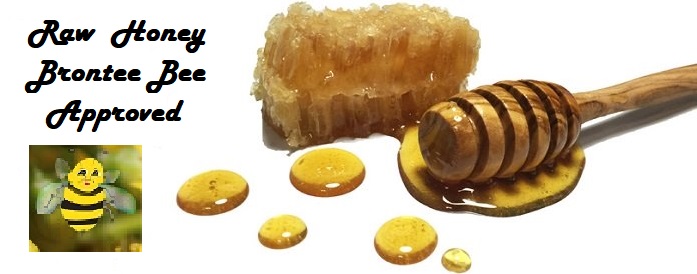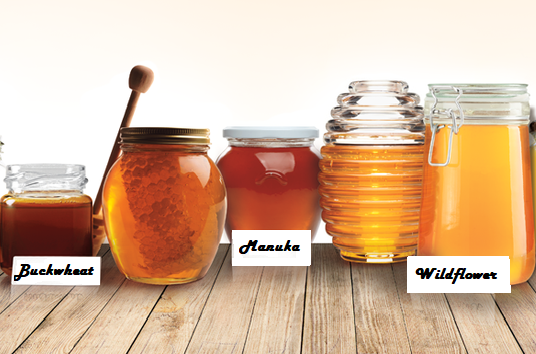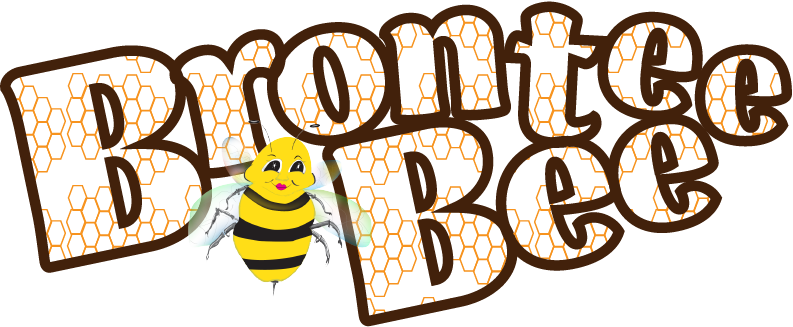
Where to buy honey
Australian honey producers and stockists map
Zero Waste Honey
Honey Health Benefits
Honey is antibacterial. Honey has been long used to treat cuts and burns and to nourish skin in traditional medicine. A lack of the scientific method at that time meant that honey’s usefulness was recognized through trial and error. The longevity of its use and the variety of cultures contained within honey should be some indication of its potency. Recent research shows honey treatment may help disorders such as ulcers and bacteria gastroenteritis. According to a study entitled, ‘Honey: A Reservoir for Microorganisms and an Inhibitory Agent for Microbes’, published by African Health Science and the National Institutes of Health, honey has properties that inhibit around 60-species of bacteria. Honey has been proved effective against Staph and MRSA (Methicillin-Resistant Staphylococcus Aureu) infections.
Honey contains flavonoids, antioxidants which help reduce the risk of some cancers and heart disease.
Honey is anti-inflammatory. Because of great need in WW1, when medical supplies were unavailable, honey was used to treat ulcers, boils and other inflammatory conditions. Its use for treating ulcerations following carcinoma surgeries is also well documented. In a Nepal Journal of Neuroscience article published in 2006, doctors treated patients suffering from multiple sclerosis somewhat effectively with raw honey. Unlike other anti-inflammatory medicines such as corticosteroids, honey doesn’t have dangerous side effects.
Honey’s effectiveness as an anti-inflammatory and – radical eradicator, makes it a natural tool in cardiovascular disease prevention. But according to a 2008 article from Scientific World Journal, honey can also be used to reduce cholesterol in overweight patients with increased risk. The study administered 70-grams of honey a day to patients over a duration of 30-days. Findings showed that natural raw honey not only reduced overall cholesterol, but also lowered e c-reactive proteins produced by the liver. E c-reactive proteins have been linked to several heart conditions.
Honey assists insulin production in diabetics. There is no substitute for monitoring blood sugar levels and insulin injections for individuals with type 1 or type 2 diabetes. However, honey has shown to have value. It can be useful as a cane sugar replacement in coffee, tea, and other applications where sweetness is desired. In 2004, the Journal of Medical Foods published an article that linked honey to decreased blood glucose levels, improve lipid profiles, and stimulated insulin secretion. Honey has also been associated with a lower glycemic index than sucrose or glucose in normal diabetes. Even though it contains simple sugars, it is NOT the same as white sugar or artificial sweeteners. Its exact combination of fructose and glucose actually helps the body regulate blood sugar levels.
Honey is anti-fungal. The prevalence and frequency of Candida infections worldwide is growing, with infections proving to have a high resistance to conventional drugs. A 2006 article published in Medical Mycology noted that honey has significant anti-fungal properties against a variety of Candida species. Honey may be a sticky solution to your problem, but it is effective in treating dandruff, athlete’s foot, and dermatitis. The only side effect to using honey as a topical application – you may have to purchase new socks or a new hat.
Treatment for certain eye conditions. Once again, the prospect of using honey to treat ocular problems seems a little far fetched and messy. However, the sticky substance proves a very common treatment worldwide for conditions—such as conjunctivitis, keratitis, corneal injuries, chemical, and thermal burns. A study published in the Kathmandu University Medical Journal, entitled ‘Honey-A Remedy Rediscovered and its Therapeutic Utility,’ measured the effects of a topical honey ointment given to 102-patients with non-responsive eye disorders. The result was improvements in 85-percent of patients and no disease progression in the remaining 15-percent.
Honey for Coughs. One remedy for coughs and colds that has continuously survived the modern age is a hot toddy (with or without the whiskey). The health benefits of the concoction – which contains vitamin c and the antioxidant benefits of tea – are known and well documented. However, honey alone has proven an effective treatment for coughs. According to the Mayo Clinic, a study conducted with children 2-years-old and up showed honey was effective at improving sleep and suppressing night time coughs. This explains why honey is common in over-the-counter cough medications. In a study of 105 children, a single dose of buckwheat honey was just as effective as a single dose of dextromethorphan in relieving nocturnal cough and allowing proper sleep. https://www.ncbi.nlm.nih.gov/pubmed/18056558.
Cancer Prevention.
Research continues on the benefits of honey in the fight against cancer. However, preliminary results indicate that the sticky stuff may be an important weapon. Honey naturally contains the same compounds used in expensive, artificially produced drugs for cancer treatment. As noted in the book, Honey Revolution, by Dr. Ron Fessenden, honey contains floral-flavonoids, which have caught the attention of the pharmaceutical industry. These compounds have been effective in removing free radicals and increasing the body’s immune defenses.
Anti-viral. Genital herpes outbreaks can be embarrassing as well as painful. Recent research published in the Journal of Medical Foods indicates that the outbreak of recurrent lesions can be treated and managed with a topical honey solution. Findings from the study indicate that honey is just as effective as prescription treatments. Science tells us that honey also inhibits the growth of the rubella virus. This means there’s a lot of potential for honey to be used as an effective virus treatment in the near future.

Oral Hygiene.
If the mounting benefits of honey are not enough to convince you to get sticky – additional scientific evidence suggests that honey also strengthens tooth enamel. In fact the Journal of Oral Rehabilitation claims honey is an effective tool used for tooth extraction pain and in the treatment of oral infections. Good oral hygiene starts with adequate brushing and flossing, as well as regular visits to the dentist. But compared to the effect of sugar cane and high fructose corn syrup on your enamel, honey seems like an excellent alternative. So stick your fingers in the honey pot for your teeth – and for your overall health and wellness.
Honey increases athletic performance. Ancient Olympic athletes would eat honey and dried figs to enhance their performance. This has now been verified with modern studies, showing that it is superior in maintaining glycogen levels and improving recovery time than other sweeteners.
Honey is Probiotic. Some varieties possess large amounts of friendly bacteria. This includes up to 6 species of lactobacilli and 4 species of bifidobacteria. This may explain many of the “mysterious therapeutic properties of honey.”
Fun Fact: During WW2 and after did you know that raw honey was used by the Flying Doctor nurses to help treat ulcers and wounds in patients in the Australian outback when medical supplies ran out.

